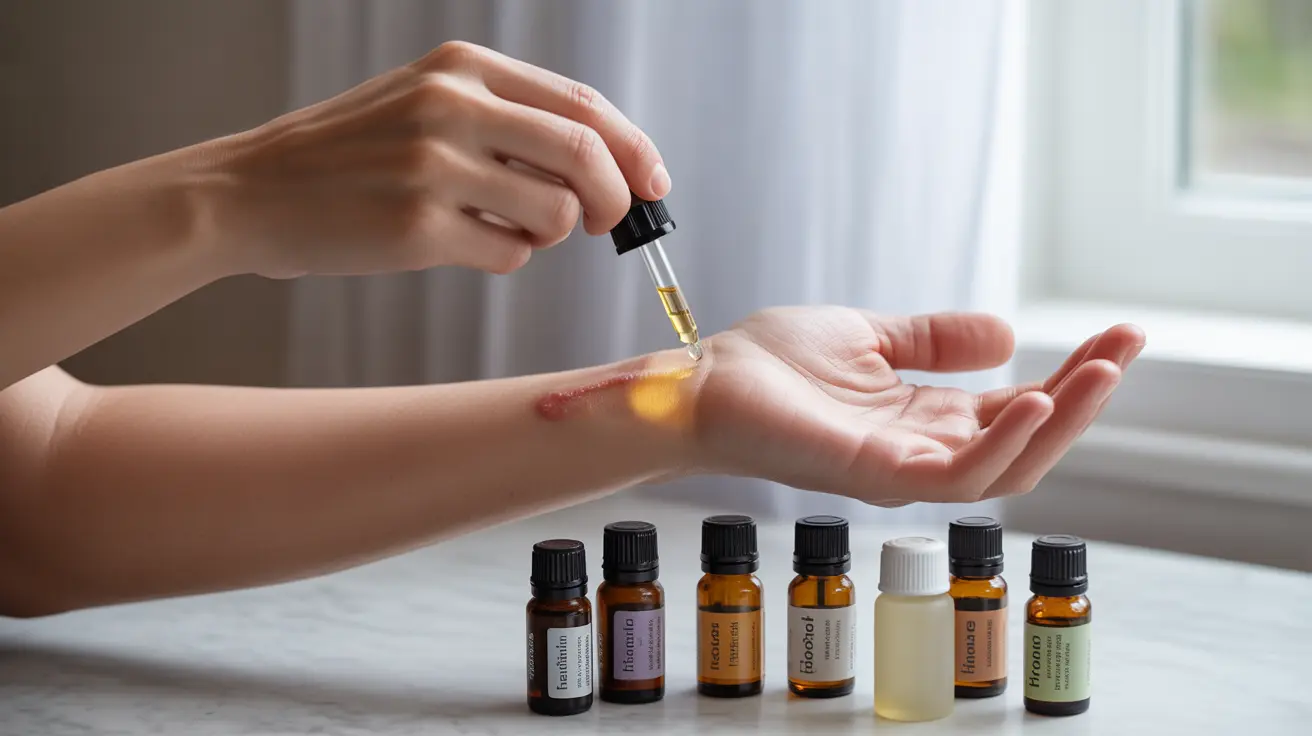After surgery, many people seek natural ways to minimize scarring and promote healing. Essential oils have gained attention for their potential benefits in scar treatment, offering a complementary approach to traditional scar management methods. This comprehensive guide explores the most effective essential oils for post-surgical scars and how to use them safely.
Understanding Scar Formation and Essential Oil Benefits
Surgical scars form as part of the body's natural healing process, but proper care can significantly influence their final appearance. Essential oils contain compounds that may help reduce inflammation, promote cell regeneration, and improve the skin's elasticity during the healing process.
Top Essential Oils for Surgical Scar Treatment
Helichrysum Oil
Helichrysum oil is renowned for its regenerative properties and ability to promote new cell growth. Its anti-inflammatory and antioxidant properties may help reduce scar tissue formation and improve the appearance of existing scars.
Lavender Oil
Known for its gentle healing properties, lavender oil can help reduce inflammation and promote skin cell regeneration. It's particularly beneficial for sensitive skin and can help calm irritation around the surgical site.
Frankincense Oil
Frankincense oil contains compounds that may help reduce the appearance of scars by promoting healthy cell turnover and supporting skin regeneration. It's particularly effective when used during the early stages of scar formation.
Safe Application Methods and Best Practices
Proper dilution and application of essential oils is crucial for safety and effectiveness. Always follow these guidelines:
- Always dilute essential oils with a carrier oil before applying to skin
- Start with a 2% dilution (12 drops essential oil per 1 oz carrier oil)
- Perform a patch test before full application
- Wait until the surgical wound is fully closed before beginning treatment
- Apply twice daily using gentle, circular motions
Choosing the Right Carrier Oils
The effectiveness of essential oils can be enhanced by selecting appropriate carrier oils. Some excellent options include:
- Rosehip oil: Rich in vitamin C and essential fatty acids
- Jojoba oil: Closely mimics skin's natural oils
- Coconut oil: Contains antimicrobial properties
- Argan oil: High in vitamin E and antioxidants
Treatment Timeline and Expectations
Consistency is key when using essential oils for scar treatment. While results vary among individuals, most people begin to notice improvements within 8-12 weeks of regular application. Continue treatment for at least 3-6 months for optimal results.
Frequently Asked Questions
- What are the best essential oils to use for reducing scars after surgery?
The most effective essential oils for surgical scars include helichrysum, lavender, and frankincense. These oils contain properties that may help reduce inflammation, promote cell regeneration, and improve scar appearance.
- How should I apply essential oils safely to surgical scars to avoid irritation?
Always dilute essential oils with a carrier oil using a 2% dilution ratio. Apply only to fully closed wounds, perform a patch test first, and use gentle, circular motions when applying. Stop use if irritation occurs.
- Can essential oils like helichrysum and lavender speed up healing and minimize post-surgery scars?
While research is ongoing, these oils have shown promise in supporting the healing process and potentially minimizing scar appearance through their anti-inflammatory and regenerative properties.
- What carrier oils work best when mixing with essential oils for scar treatment?
Rosehip oil, jojoba oil, coconut oil, and argan oil are excellent carrier oils for scar treatment. These oils provide additional healing benefits and help ensure proper essential oil dilution.
- How long does it typically take to see improvements in scars when using essential oils regularly?
Most people begin to notice improvements within 8-12 weeks of consistent use. However, optimal results typically require 3-6 months of regular application, and results can vary based on individual factors and scar characteristics.




